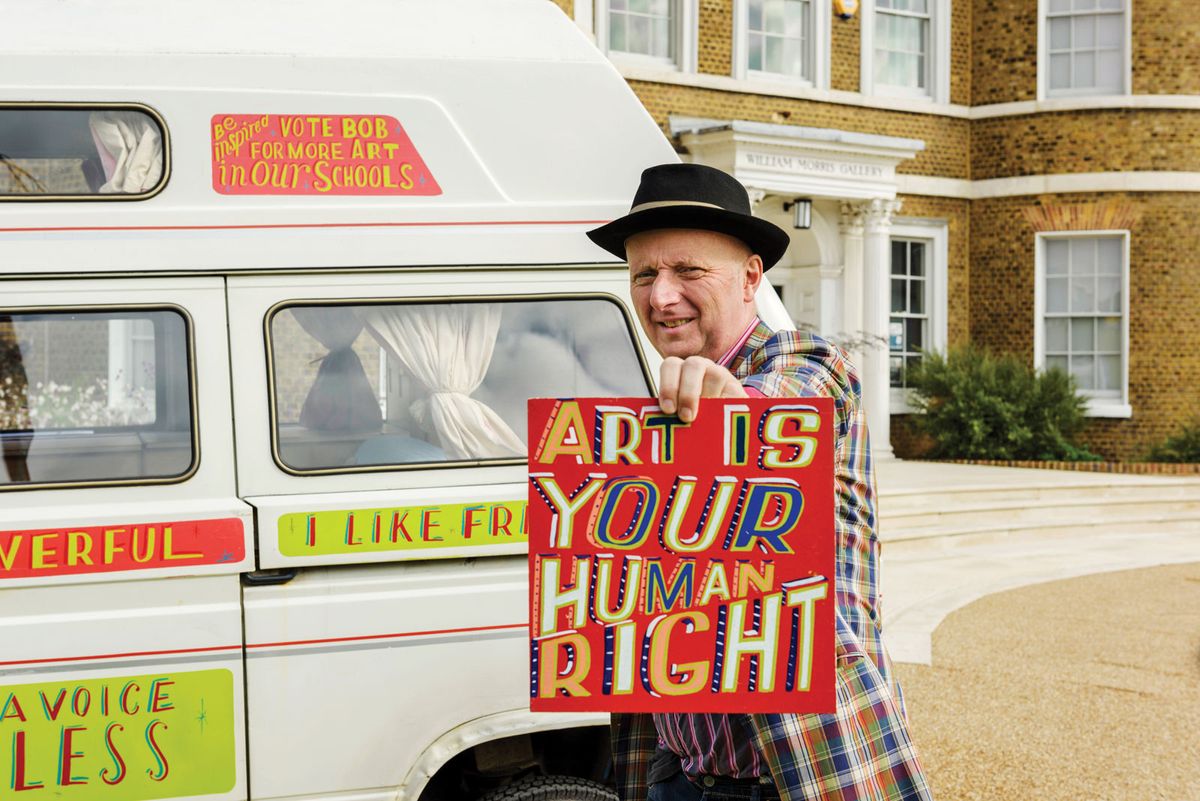Article 1. The voice of the child is central to the constitution of the arts
Art makes children powerful. Art makes people powerful. Born out of the UN charter on the rights of the child, every child should have access and an introduction to their culture as a full future participant.
Musical instruments, clay, paint, pencils, words and dances must be provided.
If we hear the voice of the child we will listen to the adult. All schools should be art schools. The Arts must be taught alongside design and mathematics in primary education in a “Leonardo” subject.
Article 2. Art is your human right
Free expression must be respected. We must hear the diversity and truth of all human expression. No artist, journalist, poet, writer or curator indeed no human being should be locked up because they have exercised their right to free expression. Artists must speak about human rights abuses and abuses of our planet. We are tied to the Earth, our voice is its voice. Artists contribute to the environment but we depend on the environment.
Article 3. No dirty palettes. No dirty money
No one wants to exhibit in a building built on the deaths of opium addicts. No one wants to teach children on a programme funded from the proceeds of human despair or despair of the planet. The voice of Nan Goldin is worth more than their millions. Artists! Don’t aim to make money, aim to make things better. We say please do not create freeports, art works are sold as luxury goods and as such the buyers of art must contribute to society via taxation. Make art not war.
Article 4. Let them in, don’t shut them out
No gate-keepers or pop pickers. Long gone, in the music business, is the idea that a group of music journalists and celebrities can sit around telling people what’s hot and what’s not.
People have access and knowledge of artists in a way that empowers them to make and form their own views. Picking prizes is about the power of the jury and nothing else. It reinforces prejudices and scuttles careers. Contemporary art museums must move to an era where their job becomes about curiosity about all art made. Every museum must hold genuine open shows and group shows so that artists can build their careers in an independent manner. Less prizes and less winners and more enquiry.
It is not cool to discover the undiscovered artist in the last decade of their life. What’s cool is to build and celebrate the careers of the artists so we know about them before it’s too late.
This is about equality. All people have culture. There are not people who have culture and those who don’t. We must value all voices. Audiences must look like tax payers and programmes must look like the people of the world.
Article 5. Funding
A 15% tax on big auction sales to fund the arts in schools. Let the art of the past fund future artists. Pay artists. If we don’t pay artists only the wealthy will make art. Philanthropy yes, but also public money. Art is a public space. Art happens in the open.
Article 6. Save our nationally important local collections
The comedian Alexei Sayle once joked that the “financial crisis was caused by too many libraries in Wolverhampton”.
We must rebuild the libraries and fill them with books, recordings, local history, geography and art. Libraries should become the stewards of local collections. There must be legislation to make provision and protection of local collections a statuary duty of local government funded by central government where needed.
Article 7. Art is omnipresent
This is the poetic constitution of the imagination. Art is everywhere. The imagination can conceive of everything. But we have to allow the dots to be joined. We must allow relationships to form and for that we need free movement. No borders and no walls. Artists without limits, art without borders.
Article 8. Teaching is beautiful
We share knowledge and we widen the circle of knowledge. Through art we can fall in love across generations. Art teaches curiosity. Look, listen, make things, sing your song. Every voice matters. Your voice needs you.
This is the constitution of the arts designed to make you powerful. It is designed to make things better by demanding you speak out and by demanding people listen. Ask, “have you signed up yet?”


